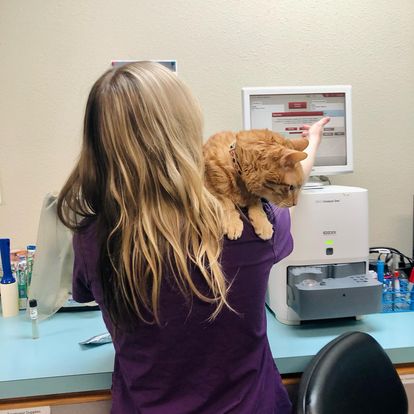Feline Endocrinology (Hormones) Lake Oswego, OR
Early identification of endocrine problems is critical for feline health, as these conditions can be serious and potentially life-threatening. With prompt diagnosis and proper treatment, such as medication or surgery, the impact of endocrine disorders, such as diabetes or hyperthyroidism, can be minimized, allowing cats to enjoy healthy and happy lives.

Feline Endocrinology (Hormones) Lake Oswego, OR
The endocrine system is made up of a group of tissues (mostly glands) that release hormones into the bloodstream. These hormones regulate metabolism, growth, development, and reproduction and are dispersed to different areas of the body, depending on the hormone’s function. When a hormonal balance is disturbed (by a tumor or autoimmune disease, for instance), an endocrine disorder can develop. “Hyper” refers to an excess of hormone, and “hypo” refers to a deficiency in a hormone. Treatment varies depending on the disease.
- Diabetes mellitus is caused by a deficiency in or resistance to the hormone insulin.
- Hyperthyroidism, which frequently affects cats, indicates that the animal has high levels of thyroid hormones.
- Addison’s disease (hypoadrenocorticism) and Cushing’s disease (hyperadrenocorticism) can also affect both species, although Cushing’s disease is rare in cats.
Contact us if your pet begins panting excessively, develops any skin issues (such as hair loss or dull coat), or shows any changes in behavior, energy levels, appetite, weight, water consumption, or urination.

